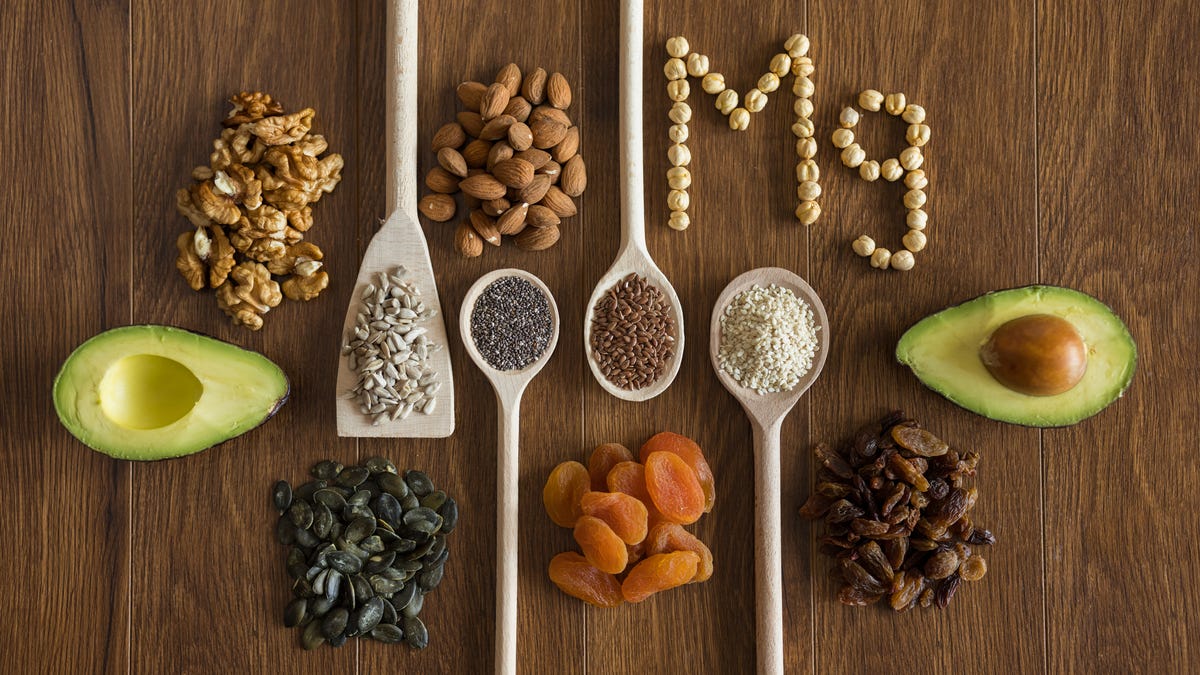Unlocking the Power of Magnesium: Essential Types and Dietary Tips
Magnesium is often referred to as the unsung hero of the mineral world. This essential nutrient plays a crucial role in over 300 biochemical reactions in our body, impacting everything from energy production to muscle function and mental health. Despite its importance, many people remain unaware of how to effectively incorporate magnesium into their diets. In this article, we will explore the various types of magnesium, its significance for health, and practical dietary tips to help you harness the power of this vital mineral.
Understanding Magnesium and Its Importance
Magnesium is a mineral found in many foods and is vital for various bodily functions. It helps regulate muscle contractions, maintain healthy nerve function, manage blood sugar levels, and support a healthy immune system. Moreover, magnesium plays a role in bone health, as it collaborates with calcium and vitamin D to ensure proper bone density and structure.
Deficiency in magnesium can lead to several health issues, including:
- Muscle cramps and spasms
- Fatigue and weakness
- High blood pressure
- Anxiety and depression
- Irregular heartbeat
Given its extensive impact on overall health, ensuring adequate magnesium intake is essential for everyone.
Types of Magnesium Supplements
There are several types of magnesium supplements available, each with unique properties and benefits. Understanding these types can help you choose the right one for your needs:
- Magnesium Citrate: This type is highly bioavailable, meaning it is easily absorbed by the body. It’s often recommended for those with digestive issues and can help relieve constipation.
- Magnesium Glycinate: Known for its calming effects, magnesium glycinate is often used to help with sleep and anxiety. It’s gentle on the stomach and has a high absorption rate.
- Magnesium Oxide: While this form contains a higher amount of elemental magnesium, it is less bioavailable. It is effective for relieving heartburn and indigestion.
- Magnesium Malate: This type is linked with energy production and is often recommended for chronic fatigue syndrome and fibromyalgia.
- Magnesium Threonate: This newer form shows promise in enhancing cognitive function and improving memory, making it a potential choice for those concerned about brain health.
When choosing a magnesium supplement, it’s essential to consider your specific health needs and consult with a healthcare professional if necessary.
Magnesium-Rich Foods to Include in Your Diet
While supplements can be beneficial, obtaining nutrients from whole foods is often the best approach. Here’s a list of magnesium-rich foods that can enhance your diet:
- Leafy Greens: Spinach, kale, and Swiss chard are excellent sources of magnesium. Incorporating these into salads, smoothies, or stir-fries can boost your intake.
- Nuts and Seeds: Almonds, cashews, pumpkin seeds, and sunflower seeds are not only nutritious but also easy to snack on. A handful can provide a significant amount of magnesium.
- Whole Grains: Foods like brown rice, quinoa, and whole wheat bread are rich in magnesium. They also offer dietary fiber, which is beneficial for digestive health.
- Legumes: Beans, lentils, and chickpeas are great sources of magnesium and protein. They can be added to soups, salads, or as main dishes.
- Dark Chocolate: Yes, you read that right! Dark chocolate contains a good amount of magnesium and can be a delicious way to boost your intake—just opt for varieties with at least 70% cocoa.
Incorporating these foods into your meals can help you meet your daily magnesium needs while providing a variety of other nutrients.
Tips for Enhancing Magnesium Absorption
To maximize the benefits of magnesium, consider these tips for enhancing its absorption:
- Balance Your Diet: Consume magnesium-rich foods alongside vitamin D and calcium to improve absorption. These nutrients work synergistically within the body.
- Limit Processed Foods: High amounts of sugar and refined carbohydrates can interfere with magnesium absorption. Focus on whole, unprocessed foods.
- Stay Hydrated: Proper hydration helps in the optimal absorption of minerals. Aim to drink enough water throughout the day.
- Avoid Excessive Alcohol: High alcohol consumption can lead to magnesium depletion. Moderation is key.
Signs of Magnesium Deficiency
Recognizing the signs of magnesium deficiency is crucial for maintaining health. Some common symptoms include:
- Muscle cramps and twitching
- Fatigue and weakness
- Mental disorders like anxiety and depression
- Osteoporosis due to poor bone health
- High blood pressure and cardiovascular issues
If you suspect you might be deficient, it’s advisable to consult with a healthcare professional who can recommend appropriate testing and treatment options.
Incorporating Magnesium into Your Daily Routine
Integrating magnesium into your daily routine can be straightforward. Here are some practical strategies:
- Start Your Day with a Healthy Breakfast: Consider oatmeal topped with nuts and seeds or a smoothie with spinach and almond milk.
- Snack Wisely: Choose magnesium-rich snacks like trail mix or dark chocolate instead of processed options.
- Plan Your Meals: Aim to include at least one magnesium-rich food in every meal. This can be as simple as adding beans to your lunch salad or having a side of quinoa with dinner.
- Consider a Supplement: If you’re unable to meet your magnesium needs through diet alone, consult a healthcare provider about incorporating a supplement.
Conclusion
Unlocking the power of magnesium can significantly impact your overall health and wellbeing. By understanding the essential types of magnesium, recognizing its importance, and implementing dietary tips, you can ensure you’re getting the magnesium your body needs. Whether through whole foods or supplements, making a conscious effort to include this vital mineral in your routine can lead to improved health outcomes and enhanced quality of life.
As you embark on this journey to enrich your diet with magnesium, remember that small changes can lead to significant benefits. Your health is worth the effort!
See more WebMD Network



